Facilities and Equipment
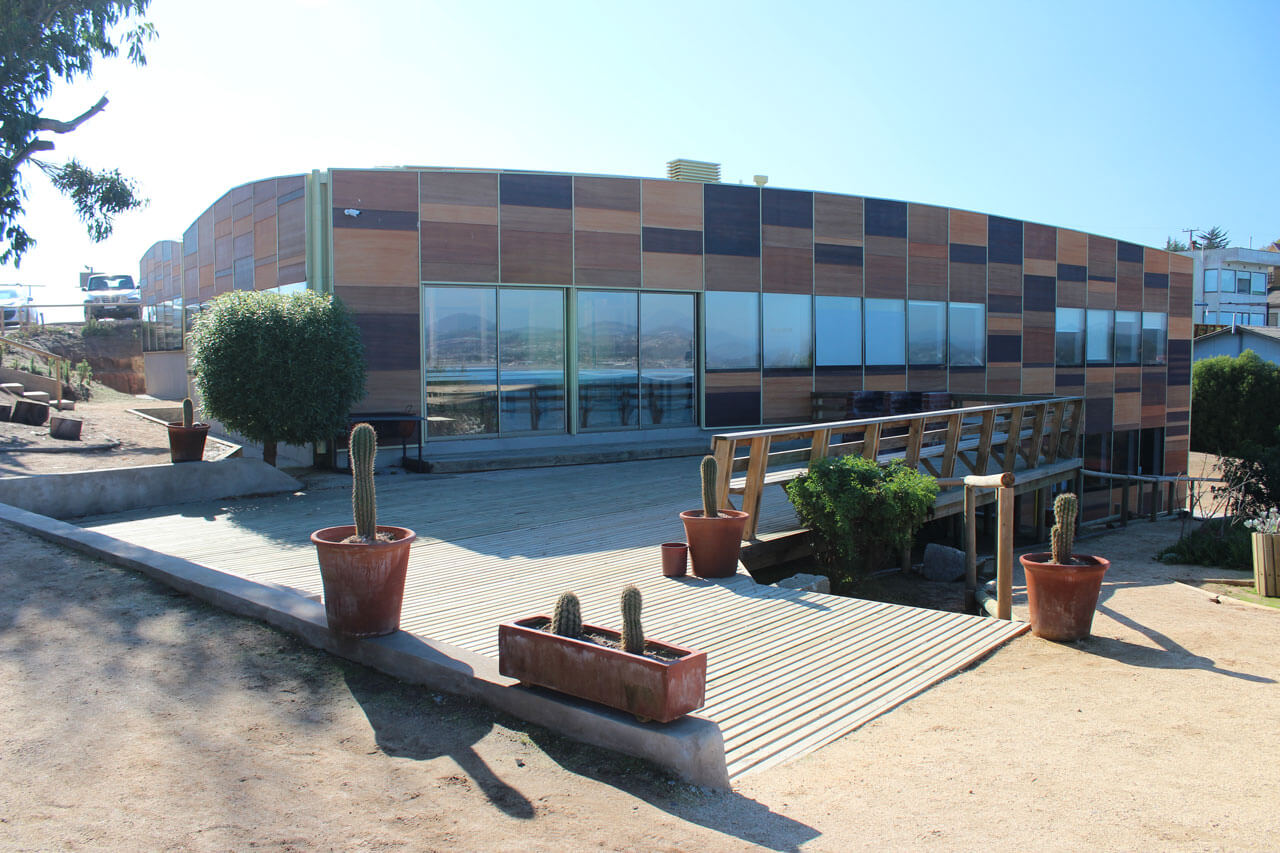
Education
Teaching laboratories and classrooms include: a) one wet laboratory for experiments with access to non-filtered seawater and air with a capacity of 20 students, b) one wet laboratory with capacity for 50 students, c) one wet laboratory for the preparation of samples and d) one dry laboratory for taking measurements with scientific instruments. Students also have access to a classroom with 12 computers and an auditorium with a capacity for 40 students with desk space. The person in charge of the administration of teaching spaces and support to university courses held in ECIM is Mr. Ricardo Calderon.
The spaces dedicated to scientific workshops and meetings include:
Auditorium
keyboard_arrow_downLocated next to the teaching classrooms, it has a projector, heating, internet and an ocean view.
It has a flat floor plan so it can be used as a classroom with tables, maximum capacity in this format is 40 people.
For lectures, seminar, or other events, the auditorium can hold up to 130 people seated.
Meeting Room
keyboard_arrow_downA meeting room with an ocean view, located in the LincGlobal module. This meeting room includes a TV projector and heating.
Maximum capacity is 23 individuals.
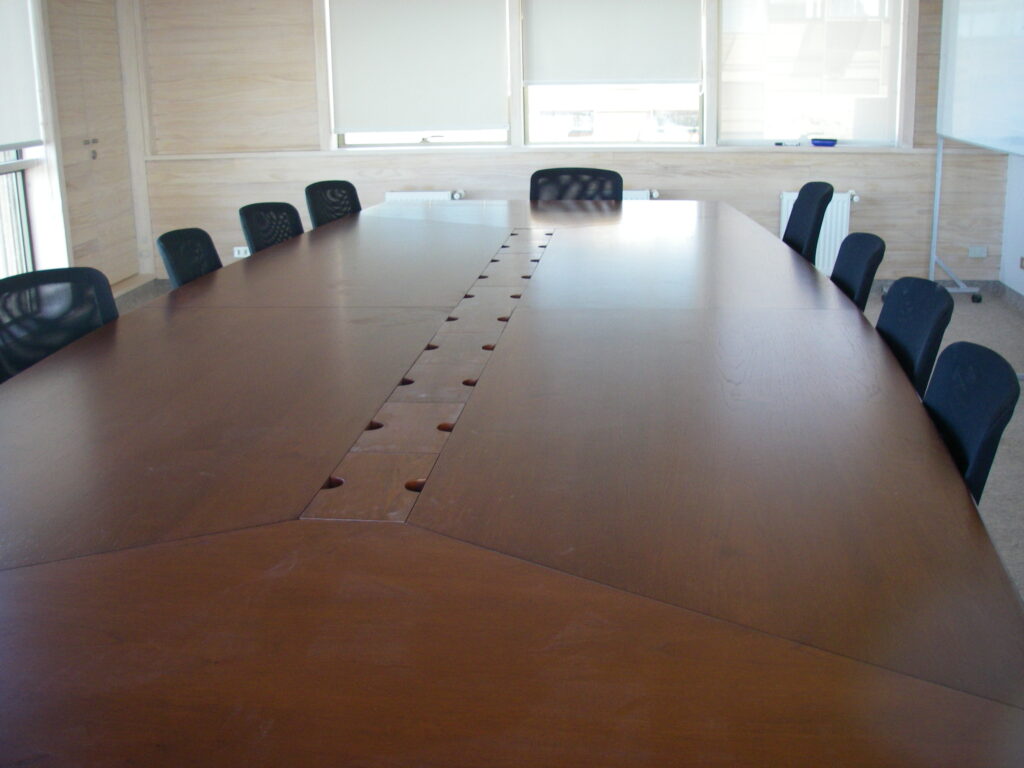
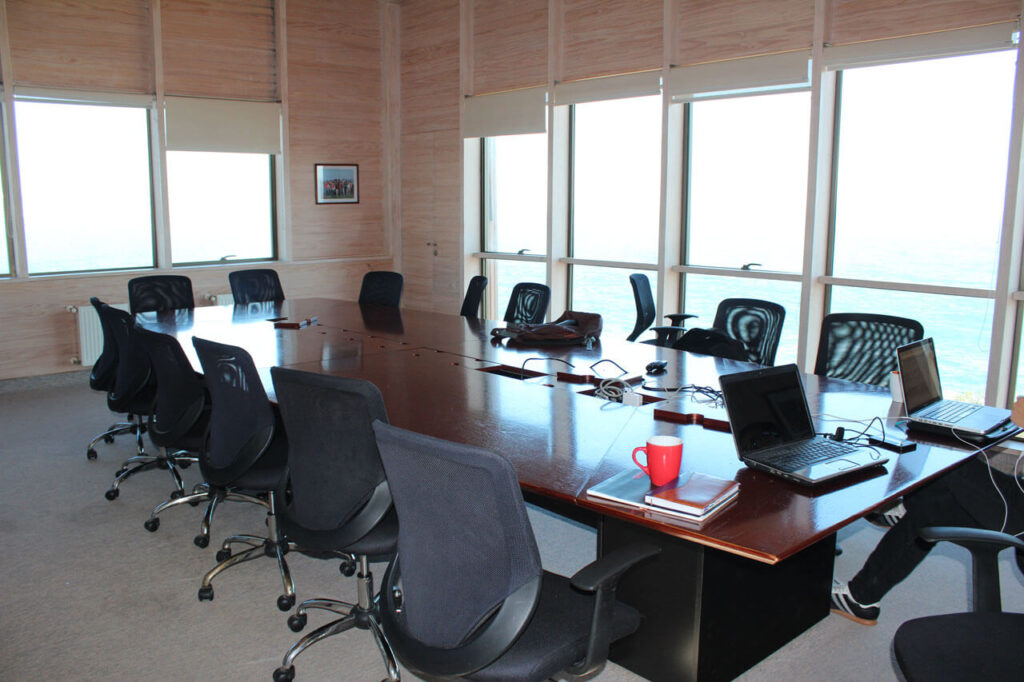
Multipurpose Room
keyboard_arrow_downLocated in the building for accommodations, the room doubles as classroom and dining room. It contains 8 tables for 50 people and access to a decked patio with a view of the ocean.
Its multiple uses can include individual projects, classroom set-up, or space to share food and coffee.
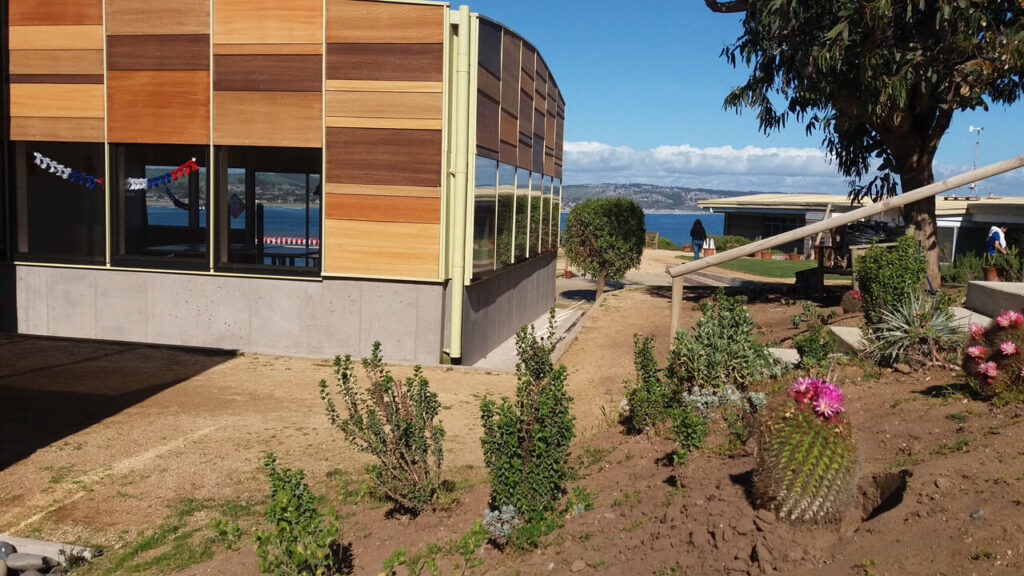
Accommodations for Researchers and Students
keyboard_arrow_down6 shared rooms (4 people per room)
2 double rooms
3 single rooms
Each room comes with a private bathroom, heating, internet access, bed dressings (sheets, blankets, and pillow). Bathrooms already contain toilet paper and hand-soap. Visitors are responsible for all other personal hygiene items.
A Laundromat is open to researchers and students at ECIM. The washer and dryer can be used through the purchase of tokens from the secretary.
All of the researchers and students have access to a fully-equipped, shared kitchen and can receive a locker to store food.
Individual maid service is not available. Common spaces and dormitory bathrooms are cleaned daily, but residents are responsible for the cleanliness of their rooms and individual spaces.
All groups larger than five people staying at ECIM must hire catering from external sources. A list of suppliers and costs are available upon request.
Housing reservations should be directed to the secretary, Mrs. Glenda Llanos. Accommodation costs include all of the basic expenses.
All individuals, researchers and students that stay at ECIM should know and strictly follow the Coexistence and Security Regulations.
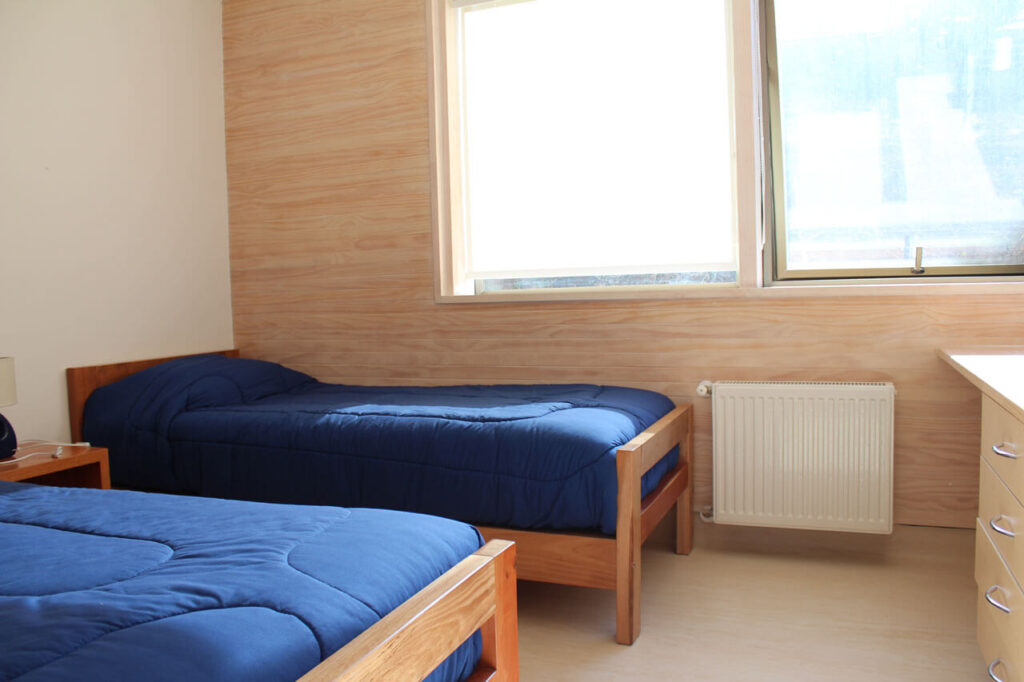
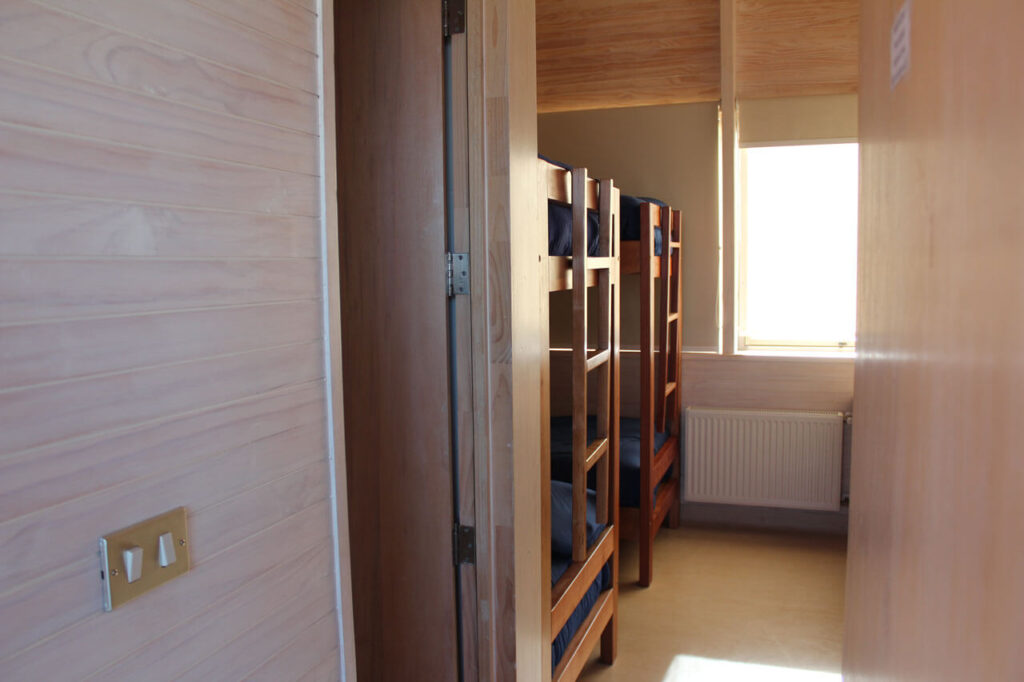
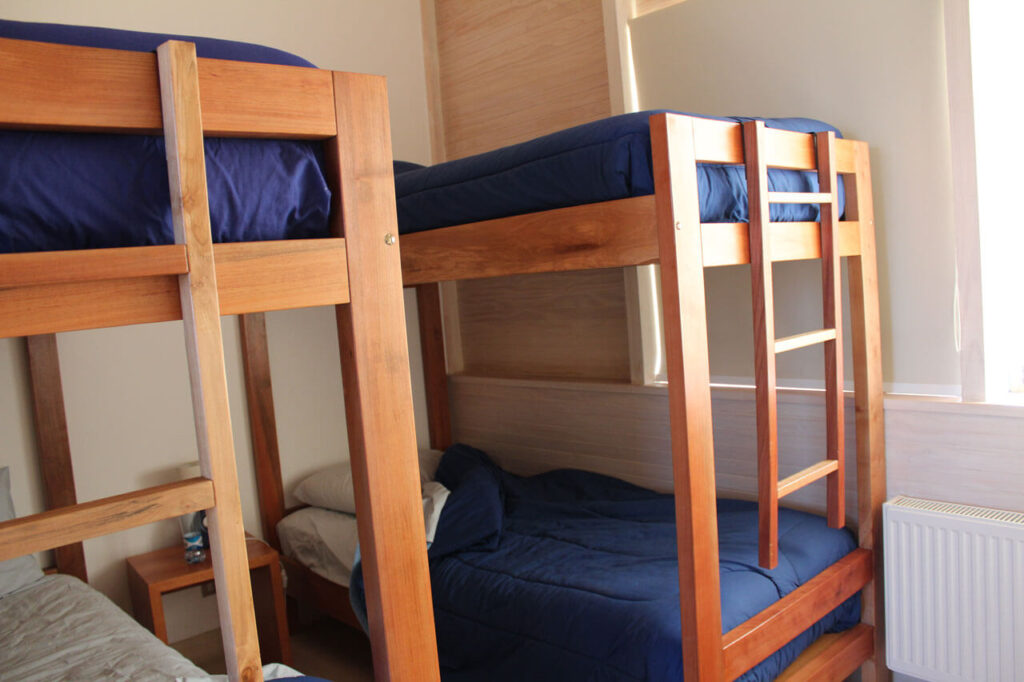
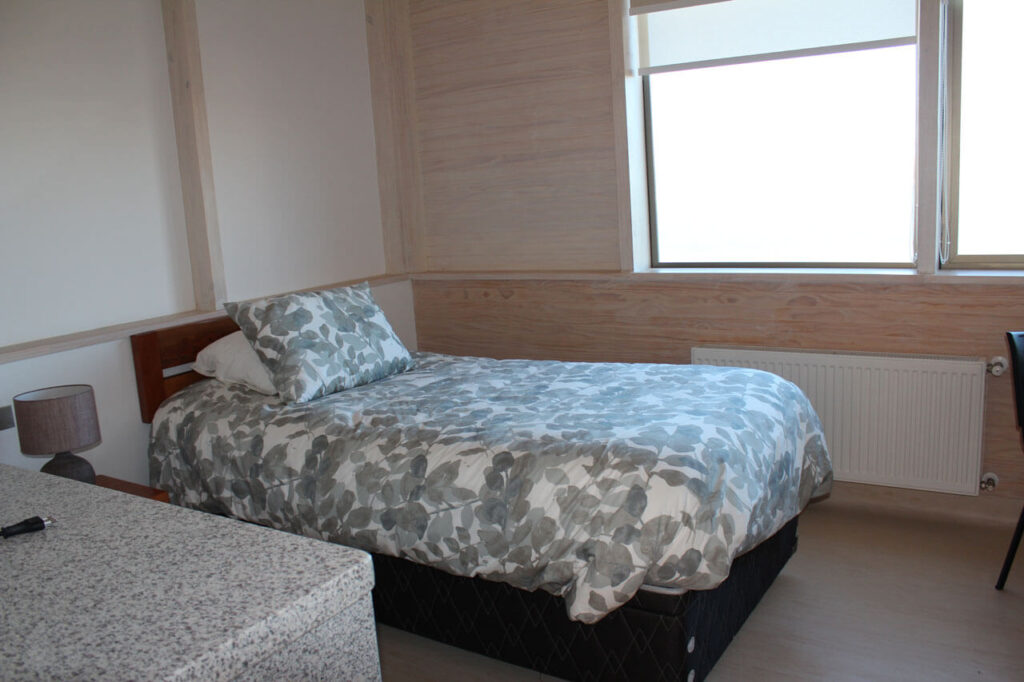
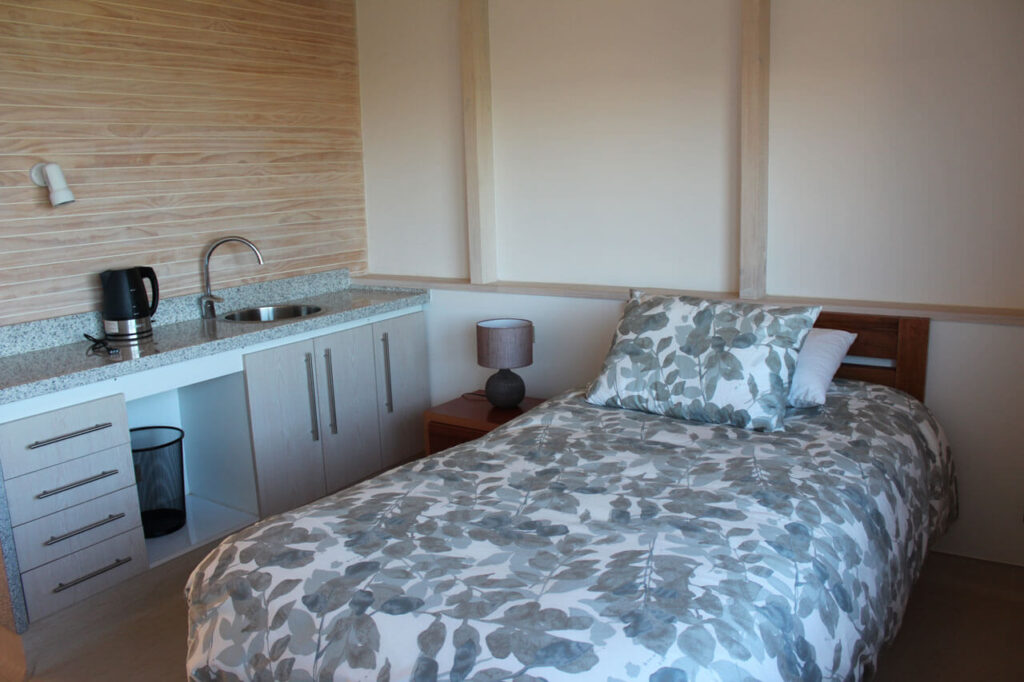
Research
The research laboratories at ECIM are thought of as service laboratories that are shared amongst all resident and visiting researchers. These spaces include shared common spaces and assigned laboratory areas for the duration of individual projects. The research laboratories at ECIM include:
- three dry laboratories (without access to seawater) for the processing of biological samples,
- one dry lab for the processing of formaldehyde-fixed samples (i.e. plankton) and drying ovens,
- a dry laboratory dedicated to the analysis of bacterial biofilms, biofouling, y marine biocorrosion (MERIC),
- a temperature-controlled chamber with five independent culture chambers with capacity to photoperiod and temperature regimes,
- two roofed spaces with natural light and air temperature (no walls) for experiments in aquaria with seawater (open circuit) and air flow,
- one wet laboratory (with seawater and air flow) dedicated to the study of invertebrate larvae and marine microalgae, g) one wet lab for biocorrosion and biofouling (MERIC),
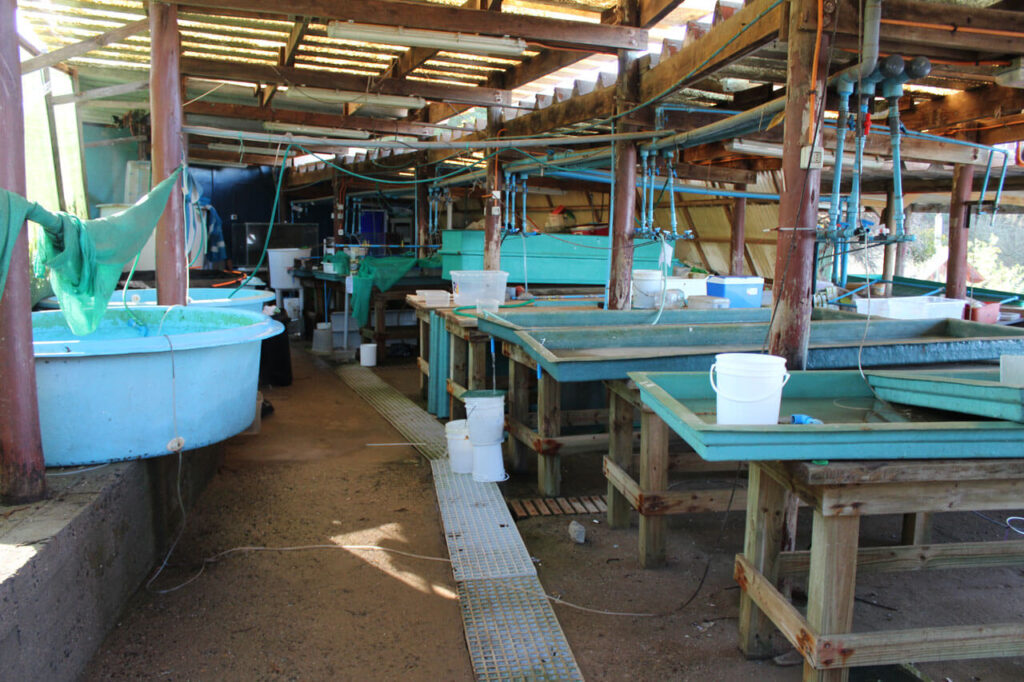
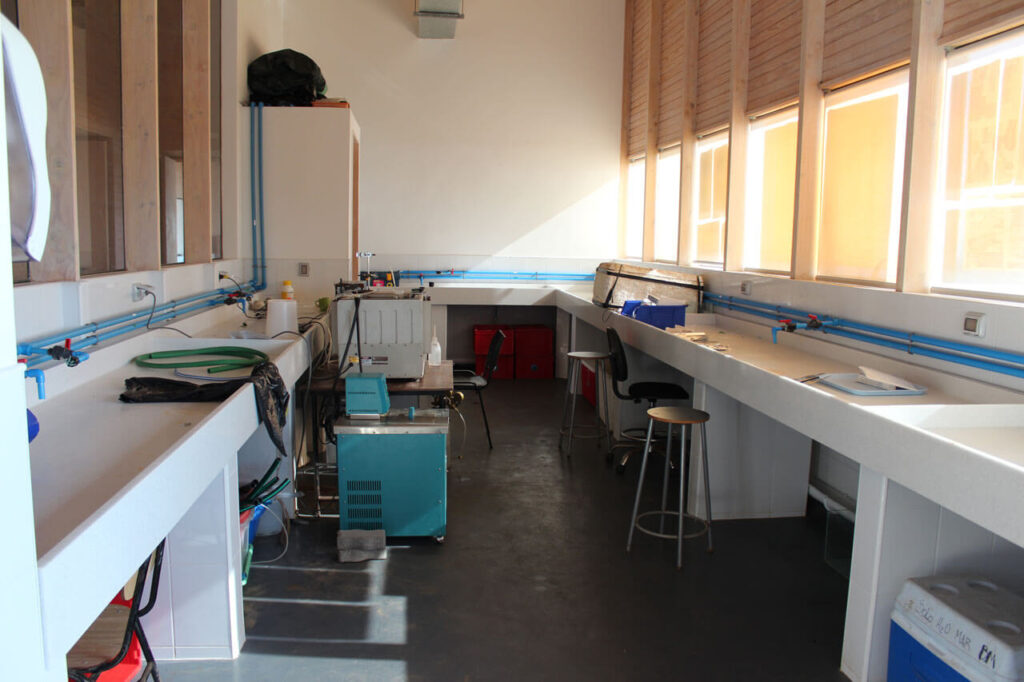
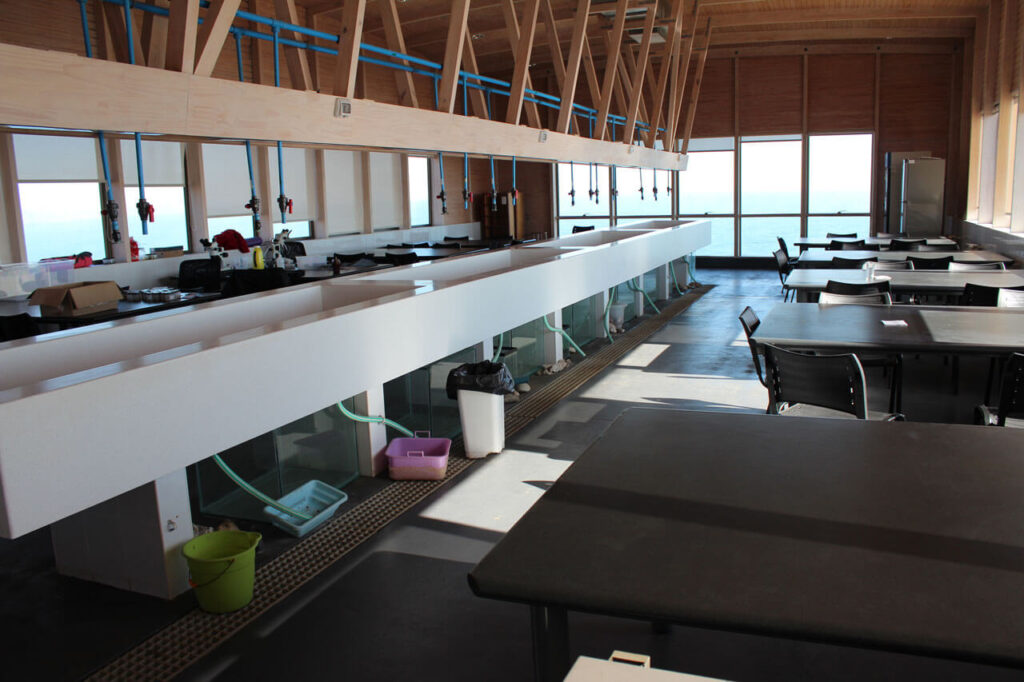
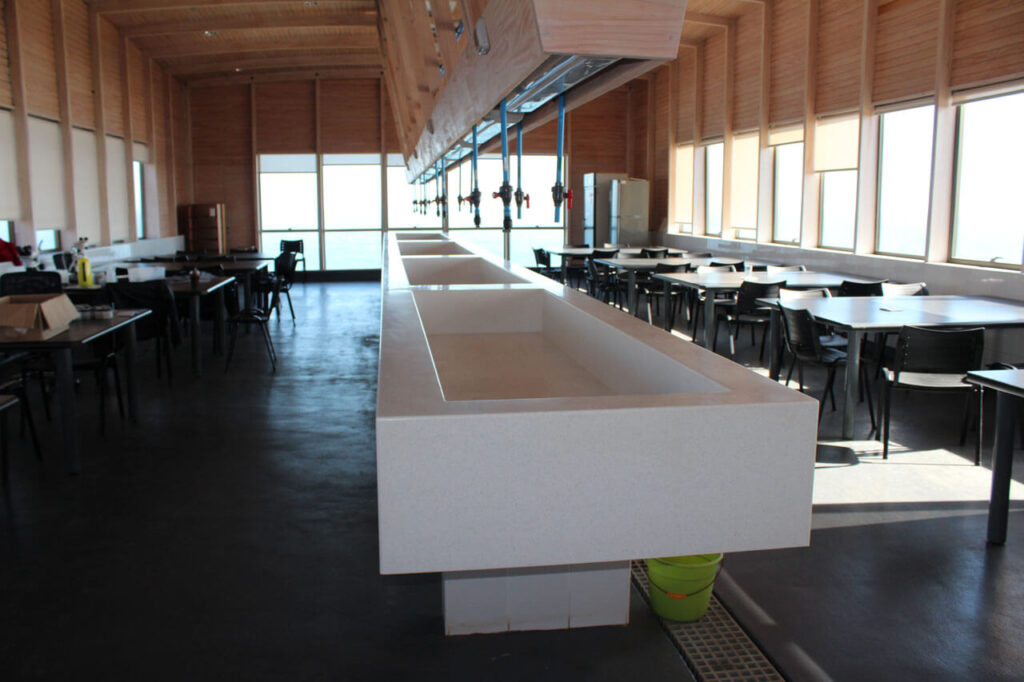
All wet laboratories have access to non-filtered raw seawater, pre-filtered seawater (must be requested separately) and air flow. The use of spaces with seawater comes with an extra cost for researchers.
ECIM has the infrastructure for scientific scuba diving, which includes a compressor to re-fill tanks, scuba diving equipment (tanks, vests, regulators and weight belts; each diver is responsible for their own mask, fins, and thermal protection), changing rooms, lockers, and security equipment. Any researcher wishing to conduct scientific (or recreational) diving with ECIM equipment should be a licensed diver and comply with ECIM Diving Regulations and follows all instructions from Dive Officer, Dr. Randy Finke.
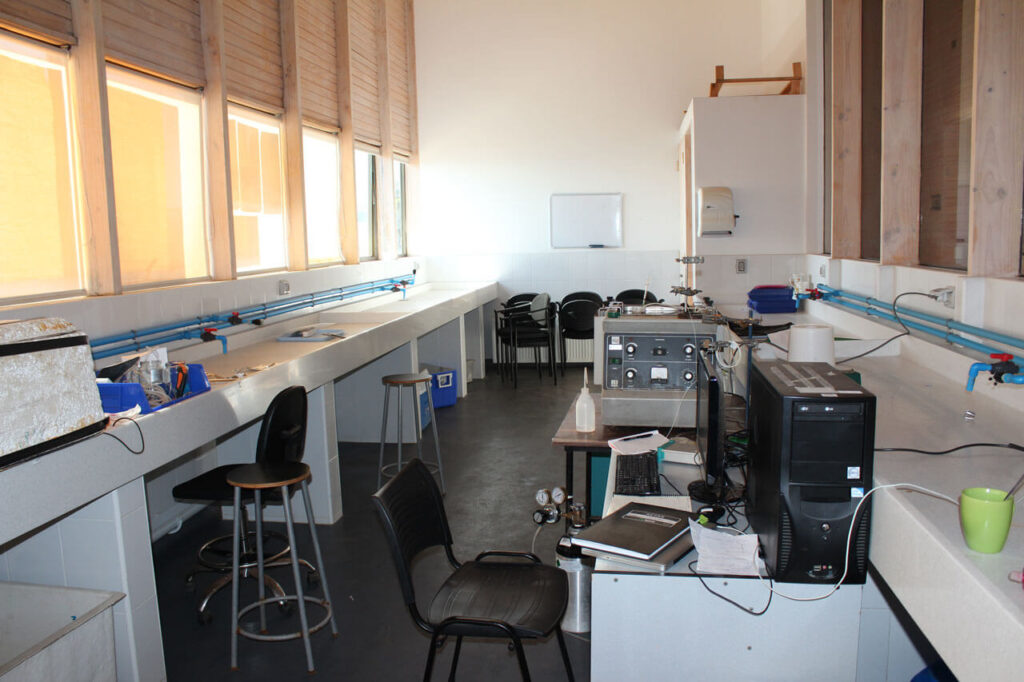
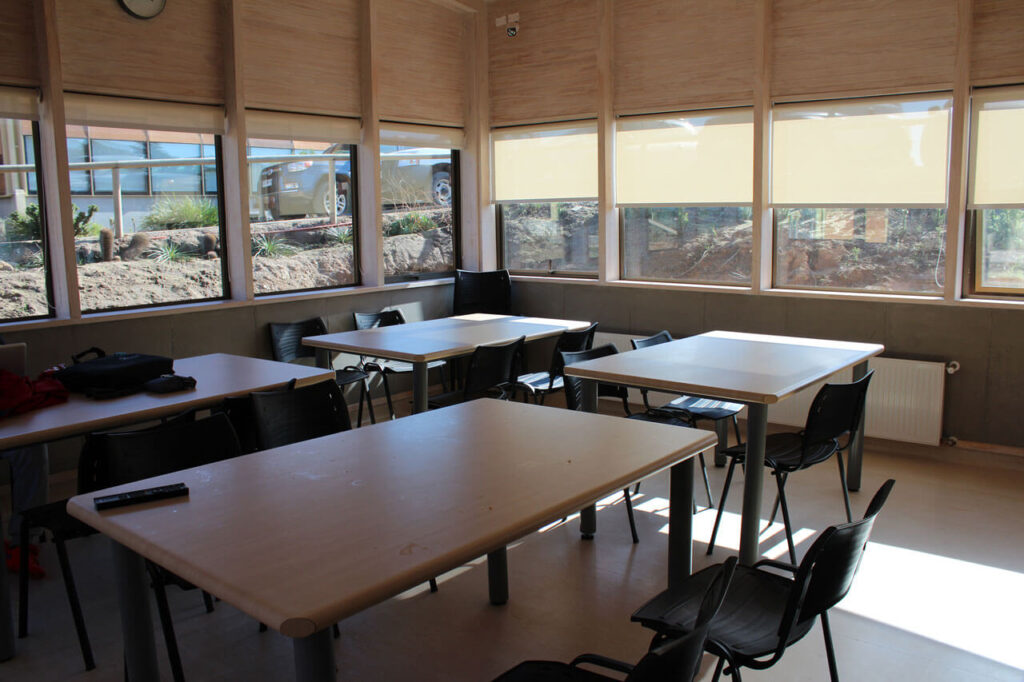
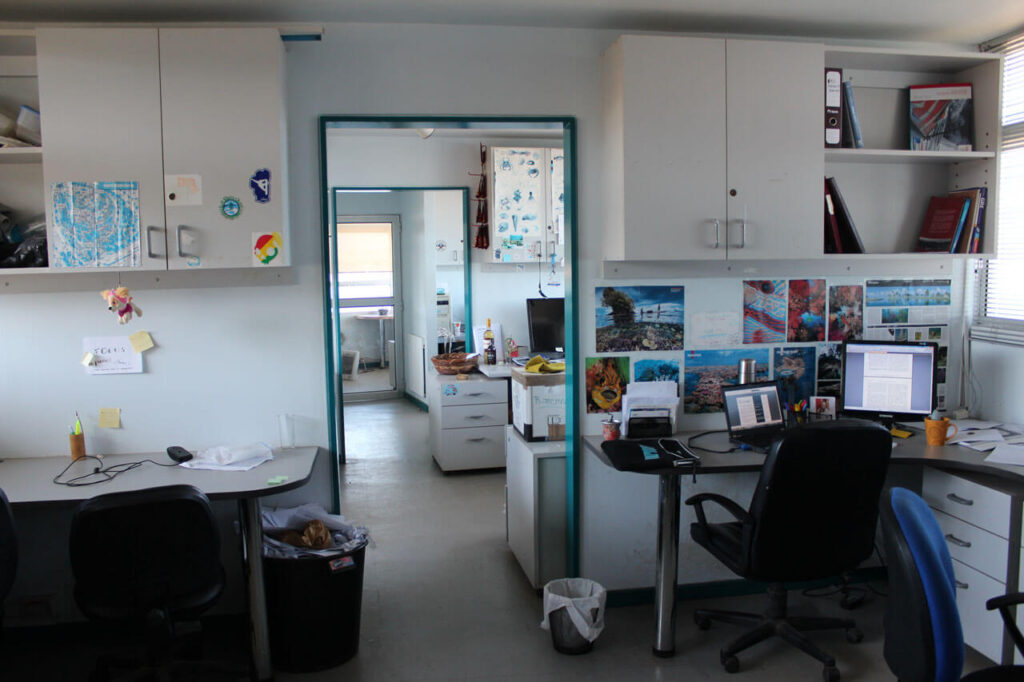
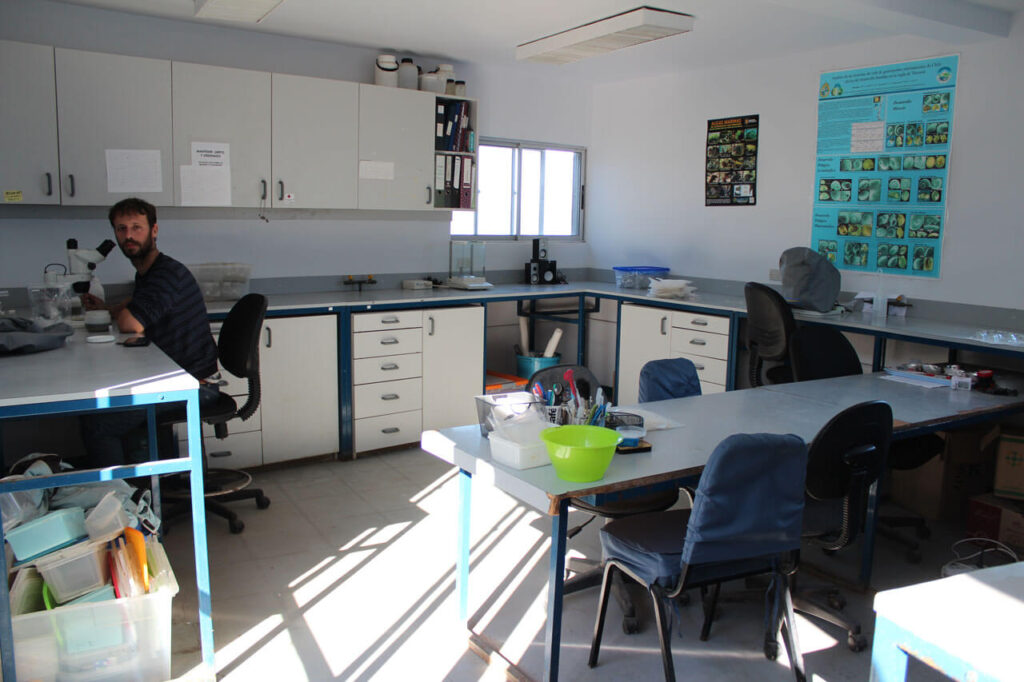
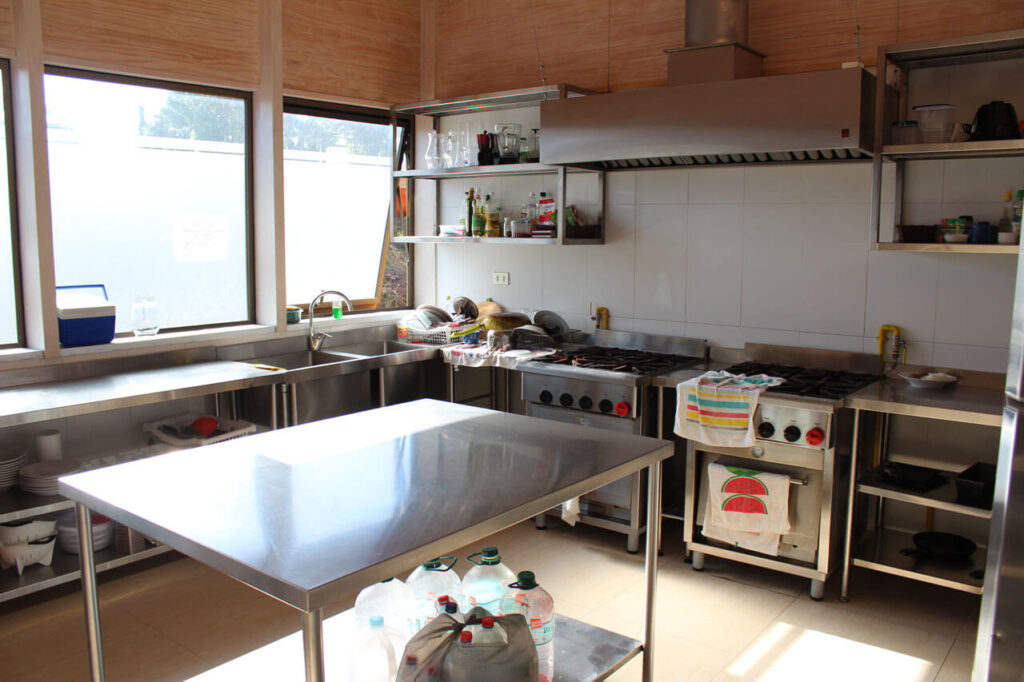
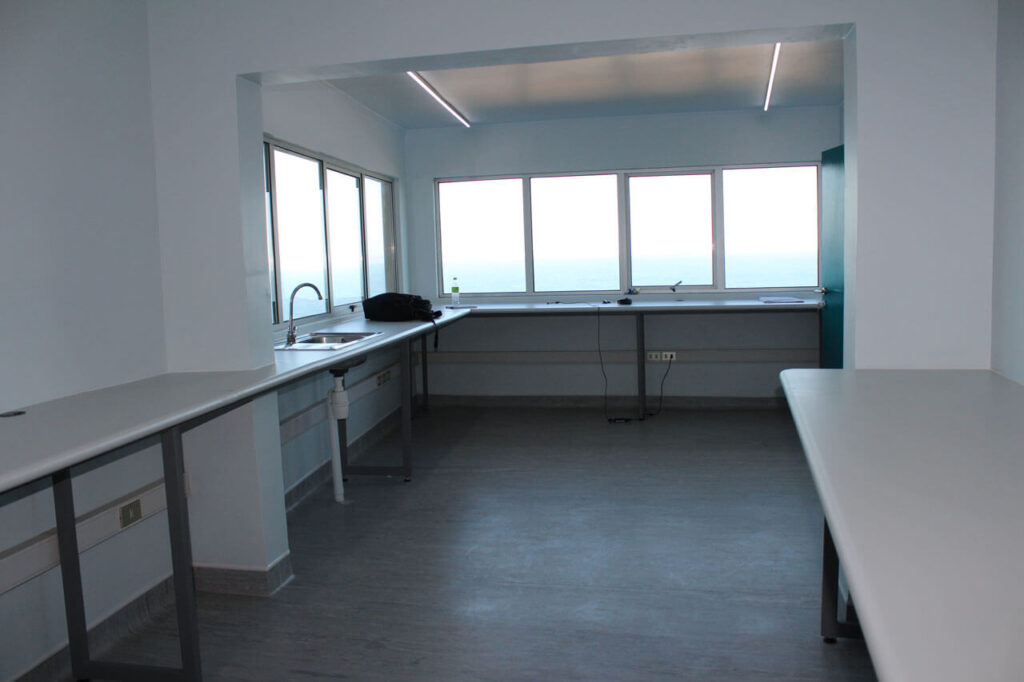
Two smaller vessels are also available within ECIM in order to conduct oceanographic and biological studies in the coastal zone. The Ilán is a fiberglass boat, 8.4 meters long, and can accommodate 6 people. The boat also has a dry cabin, a flat workspace, GPS echo-sounder, communication system, pulley system to lift instruments, and meets all safety standards for operation in the coastal zone.
ECIM also maintains a meteorological station, which registers temperature, relative air humidity, atmospheric pressure, rainfall, wind direction and velocity, solar radiation, total-UV radiation, UV-A, and UV-B. The majority of these data are available for free format use upon request. Additionally, ECIM possesses three Seabird 19 CTDO profilers (conductivity, temperature, density, and oxygen) equipped with WetLabs fluorometers, acoustic current profiler, ADCP, RD Instruments of 600 MHz. All equipment is available to UC researchers at a cost that allows for the maintenance and calibration of these instruments. Dr. Randy Finke is in charge of oceanographic instruments and research vessels.